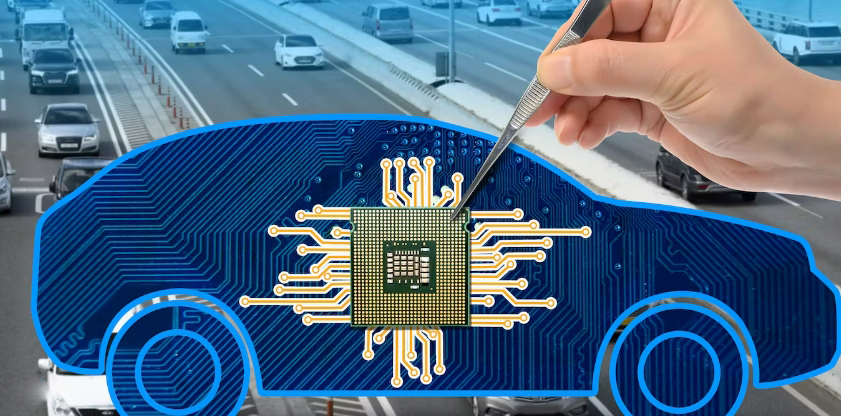Intel Corp. is making an aggressive push into the automotive space with a professional version of its latest artificial intelligence chip.
With the launch, the company challenges rivals Nvidia Corp. and Qualcomm Inc., which currently dominate the market for semiconductors, the brains of a new generation of smart cars.
Today at the Consumer Electronics Show in Las Vegas, the company unveiled a new software-defined automotive system-on-a-chip that it says is designed to inject artificial intelligence experiences into next-generation cars. The SoC is also flexible because developers will be able to say exactly what kind of processing they want in the car.
Chinese electric car maker Zeekr has been designated as the first automaker to use Intel's AI-enhanced software-defined automotive system-on-a-chip, with plans to build an "enhanced living room experience", video conferencing and AI voice assistant capabilities into its vehicles.
Jack Weast, vice president and general manager of Intel Automotive, said during a CES briefing that the new AI chips for cars are based on the company's recently announced AI PC technology but will be tuned for the durability and performance requirements of cars and other vehicles.
In addition to the new chips, Intel also announced plans to acquire French startup Silicon Mobility SAS, which designs SoC technology and software for controlling electric vehicle motors and on-board charging systems. Intel did not disclose how much it paid for Silicon Mobility, a privately held company partly owned by venture capital firms Cipio Partners and Capital-E.
The startup’s SoC is said to integrate industry-leading accelerators and is designed to improve energy efficiency. They also use advanced artificial intelligence algorithms to maximize energy efficiency. The technology will help expand Intel's presence in the automotive space, moving from high-performance computing to smart and programmable power devices.

Intel already has a presence in the infotainment systems market, with its chips installed in more than 50 million vehicles worldwide. However, the company lags behind market leaders Nvidia and Qualcomm. Automotive chips are not only used for autonomous driving, but also power in-vehicle infotainment software and complex dashboard displays.
Weast told reporters at CES that Intel "has done a really bad job of communicating our success in automotive" and it's time to change that. He explained that Intel will try to differentiate itself from rivals by selling chips to automakers that can be used across its product lines, with options ranging from the lowest-priced chips to the most advanced ones.
"If AI in a car means 500 watts...the cost is God knows what...it's not scalable," Weast said, referring to Nvidia's powerful but also very expensive products.
However, Intel isn't the only company taking this approach. Last year, Nvidia announced a partnership with Taiwanese chipmaker MediaTek to provide automakers with lower-cost chips. MediaTek has a strong presence in the market for Android-based infotainment systems for low-cost cars.
The Chinese electric vehicle market is expected to be a battleground for Intel and its rivals. Chinese automakers are rushing to introduce self-driving systems and more advanced infotainment features into their vehicles, and Zeekr is also a customer of Nvidia and Intel.
Weast said Intel is agnostic about what technology automakers want to use to power their self-driving and other features. As a result, the company will not require automakers to use advanced driver chips made by its former mobile chip-making unit Mobileye Global Inc. Instead, they will be able to integrate their own chips into Intel's systems, helping them lower costs.






